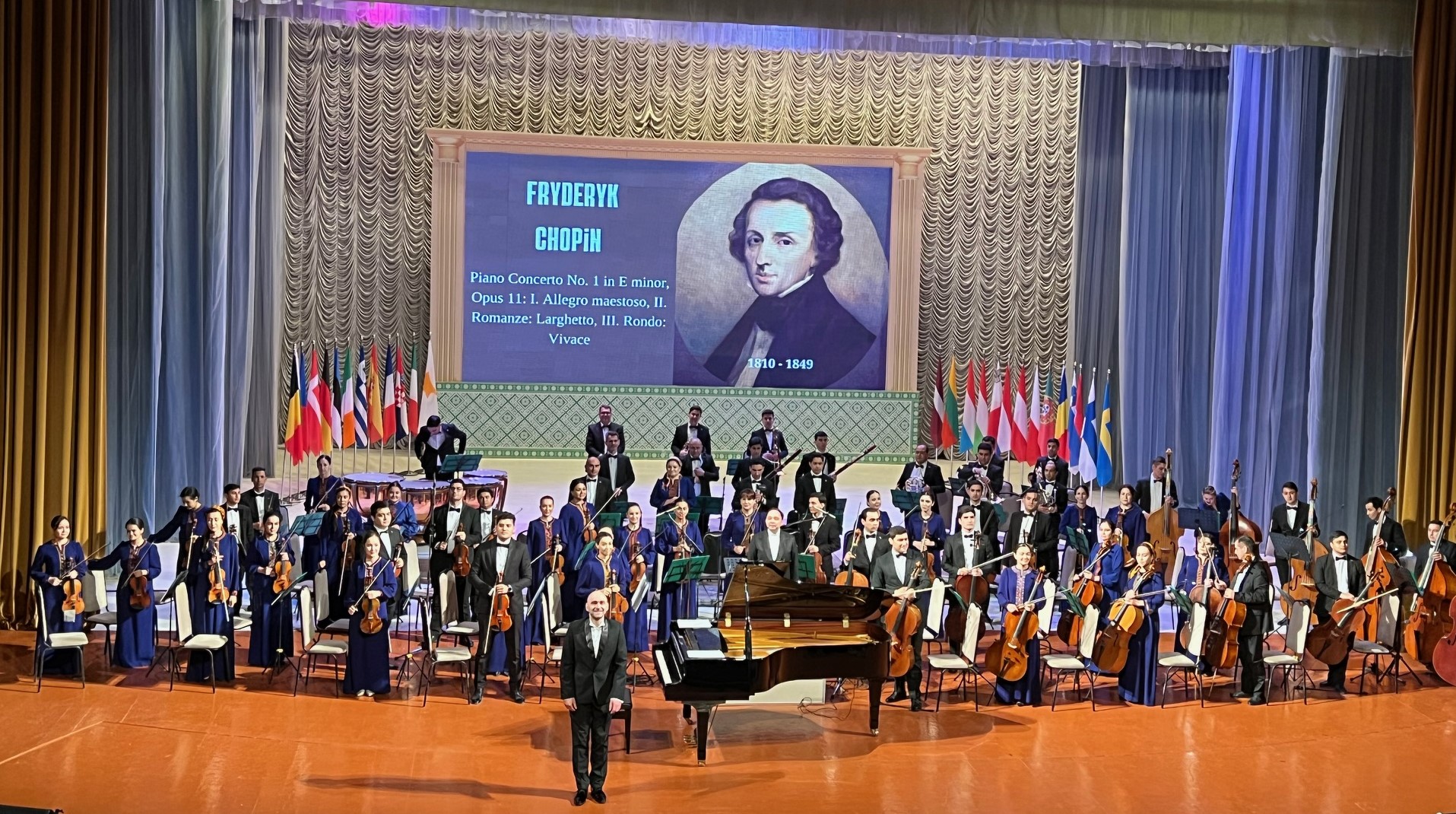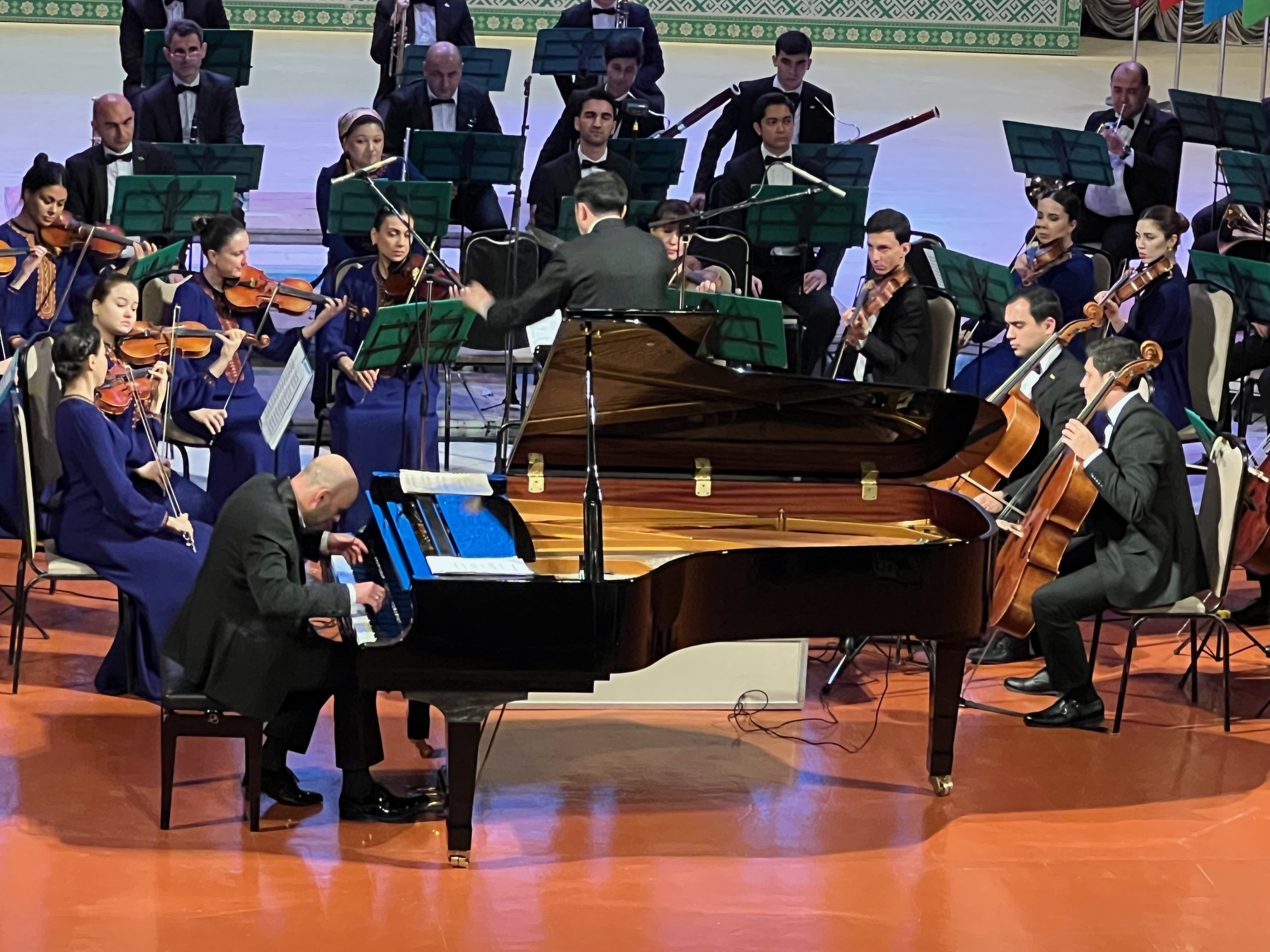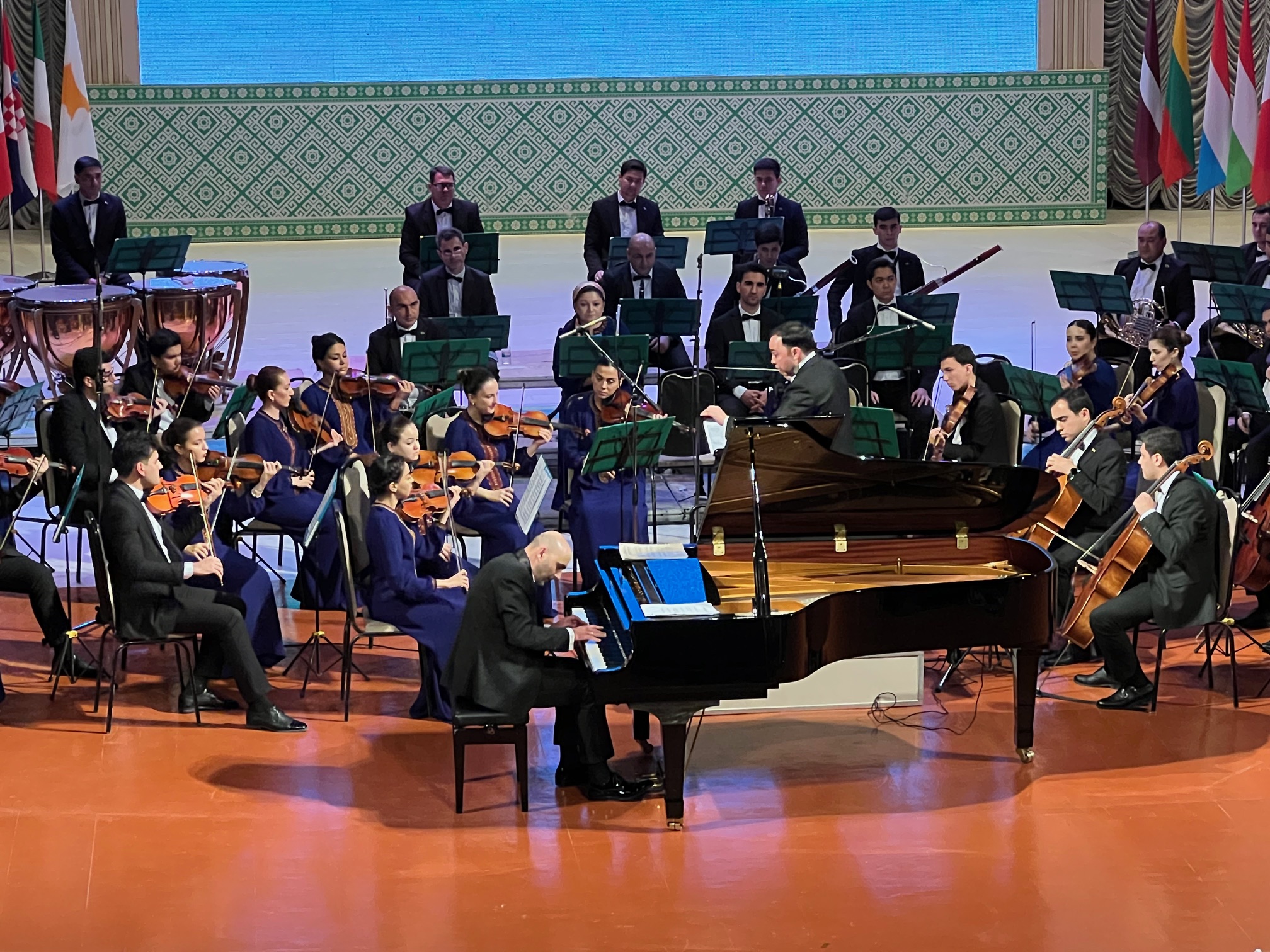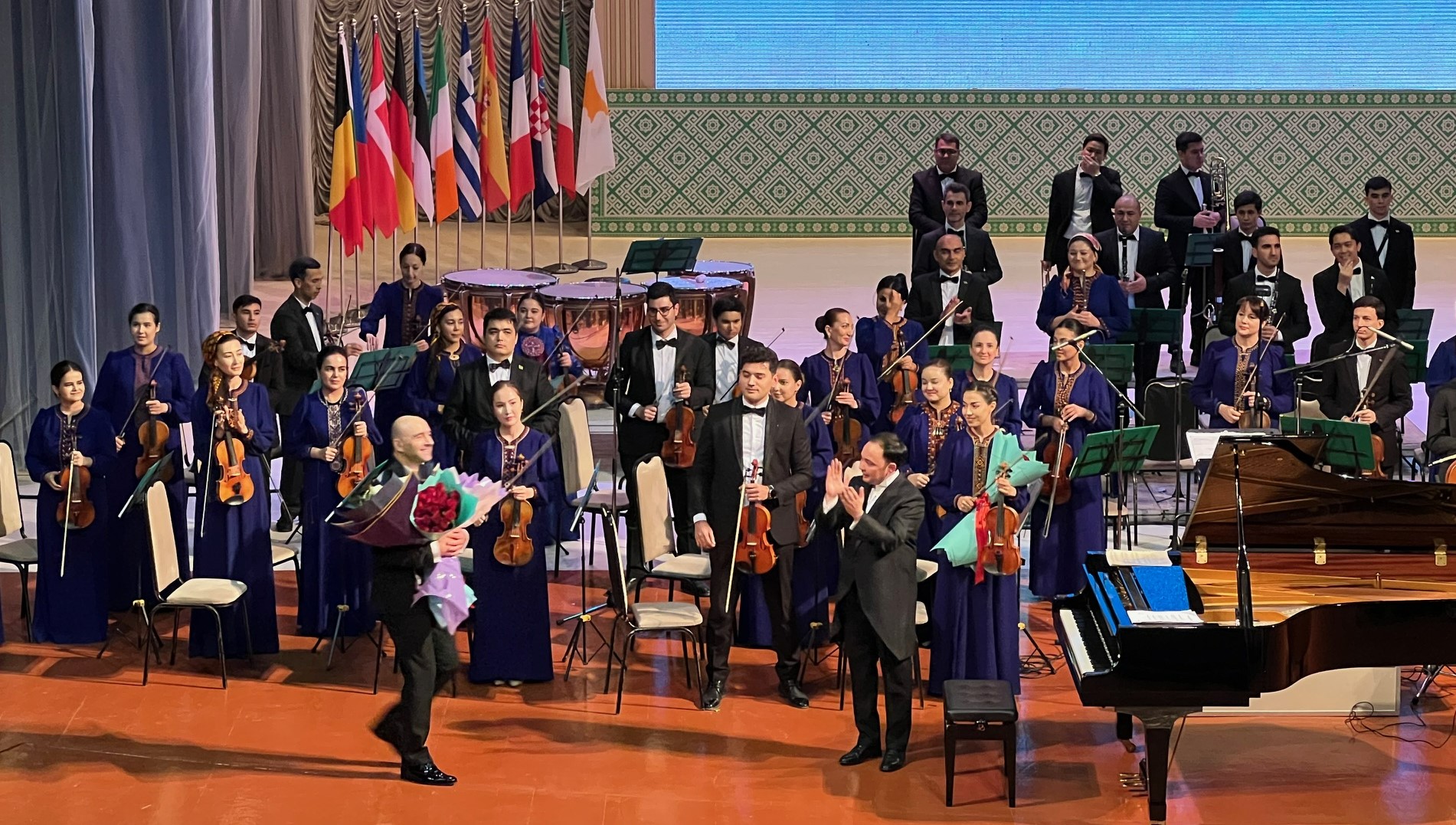Experiencing Chopin with Wojciech Waleczek in Ashgabat – When Even Silence Resounds

On November 21, a classical music concert featuring renowned Polish pianist Wojciech Waleczek and the State Symphony Orchestra of Turkmenistan under the baton of Rasul Klychev took place at the Mukam Palace in Ashgabat as part of the European Union Culture Days.
The concert featured piano works by world-renowned composers: Debussy, Beethoven, Mozart, Liszt, Paganini, and Albéniz. Their music retains the ability to speak to us as if written today. It possesses a special inner energy, capable of eternal rebirth. It finds new meaning in the present and continues to be relevant. As long as people seek meaning, beauty, and truth, the art of great composers will live on.
Wojciech Waleczek is one of those pianists who truly ensures that classical music remains timeless. He doesn't simply reproduce the text; he restores its natural impulse, the living breath for which this music was originally created. Waleczek has a knack for bringing to life what remains eternal: pure love, inner struggle, the desire to overcome, luminous melancholy, and subtle lyricism. And the people of Ashgabat were fortunate to witness a performance in which this great legacy resounded with pristine freshness, and timeless music regained its breath.

The highlight of the evening was undoubtedly Frédéric Chopin's Piano Concerto No. 1. Waleczek's interpretation of it became the highlight of the program, the pinnacle of emotional uplift, and the culmination of the entire concert.
Chopin's First Piano Concerto, as performed by Wojciech Waleczek, is distinguished by noble restraint, deep structural understanding and the type of intellectual clarity that is his artistic calling card.
In the Allegro Maestoso, the pianist immediately sets the tone – the music sounds composed, with the emphasized plasticity of aristocratic phrasing. He avoids superficial romantic pretentiousness; the music flows freely and expressively, and the virtuoso passages sound not as an end in themselves, but as elements of dramaturgy – light, transparent, constructed with particular attention to the architecture of the phrase. In his dialogue with the orchestra, Waleczek displays an almost chamber-like delicacy: the solo piano does not dominate, but naturally weaves into the overall sonic fabric.

The second movement, Romanse Larghetto, reveals another side of Wojciech Waleczek's artistic nature: his emotional depth, revealed with absolute subtlety. His lyricism, free from superficial effects and excessive sentimentality, his soft touch, transparent pedaling, flexible agogics, and rare poignancy of performance create the atmosphere of a confessional monologue, a striving for sublime poetic silence. His phrases don't "float" but soar, as if rising from the depths of the piano and immediately melting into the air, creating moments of dissolved tenderness.
The final Rondo. Vivace is a different world: a world of light, elastic rhythm, instantaneous vitality... Waleczek makes this finale not brilliant, but joyful. The musician's Polish soul is revealed in every mazurka bounce, in the light, almost ethereal strokes, in that very natural grace that cannot be simulated.
The main characteristic of Wojciech Waleczek's interpretation is his ability to combine philosophical depth and emotional frankness without losing Chopin's transparency and style. And his sound is striking in its exceptional refinement. He possesses a rare gift: to sound subtle, but never dull. With Waleczek, even silence resonates.

Wojciech Waleczek transforms the solo part not into a brilliant demonstration, but into a sincere, almost chamber dialogue that blends seamlessly into the symphonic fabric of the orchestra. This creates the feeling of a single artistic space: not a pianist and an orchestra, but a joint movement in which every gesture of the piano receives a delicate response in the orchestral texture.
The Turkmenistan Symphony Orchestra, under the baton of Honored Artist, Principal Conductor, and Artistic Director Rasul Klychev, deserves special attention. He played the role of an intelligent co-author and subtle partner, revealing Chopin's lyricism in subtle colors without compromising its delicacy, opening up a space in which the soloist could breathe and speak freely. The orchestra in this performance was neither decoration nor backdrop. It was the breath of the concert, its fabric, its movement. It was like the landscape around the hero: it didn't dominate, but it made the journey meaningful, and the music vibrant, full of light and inner truth.

The enormous hall of the Mukam Palace, with its sold-out audience, was filled with absolute, vibrant silence. And this silence wasn't emptiness, but recognition. She says the music reached the heart of the audience, causing it to freeze in a single breath, and everyone in the audience, holding their breath, not just listened but experienced every note, afraid to disturb the fragile moment of contact with the great art of Chopin's genius.
Svetlana KIM




